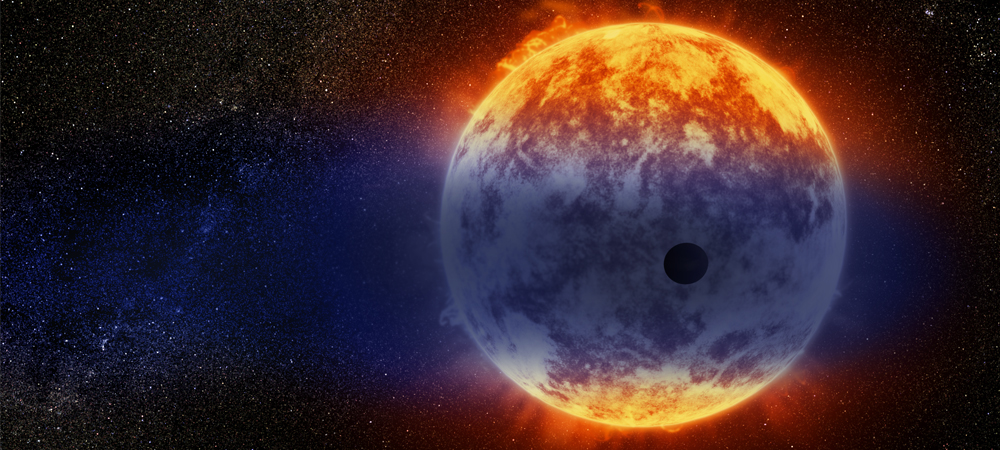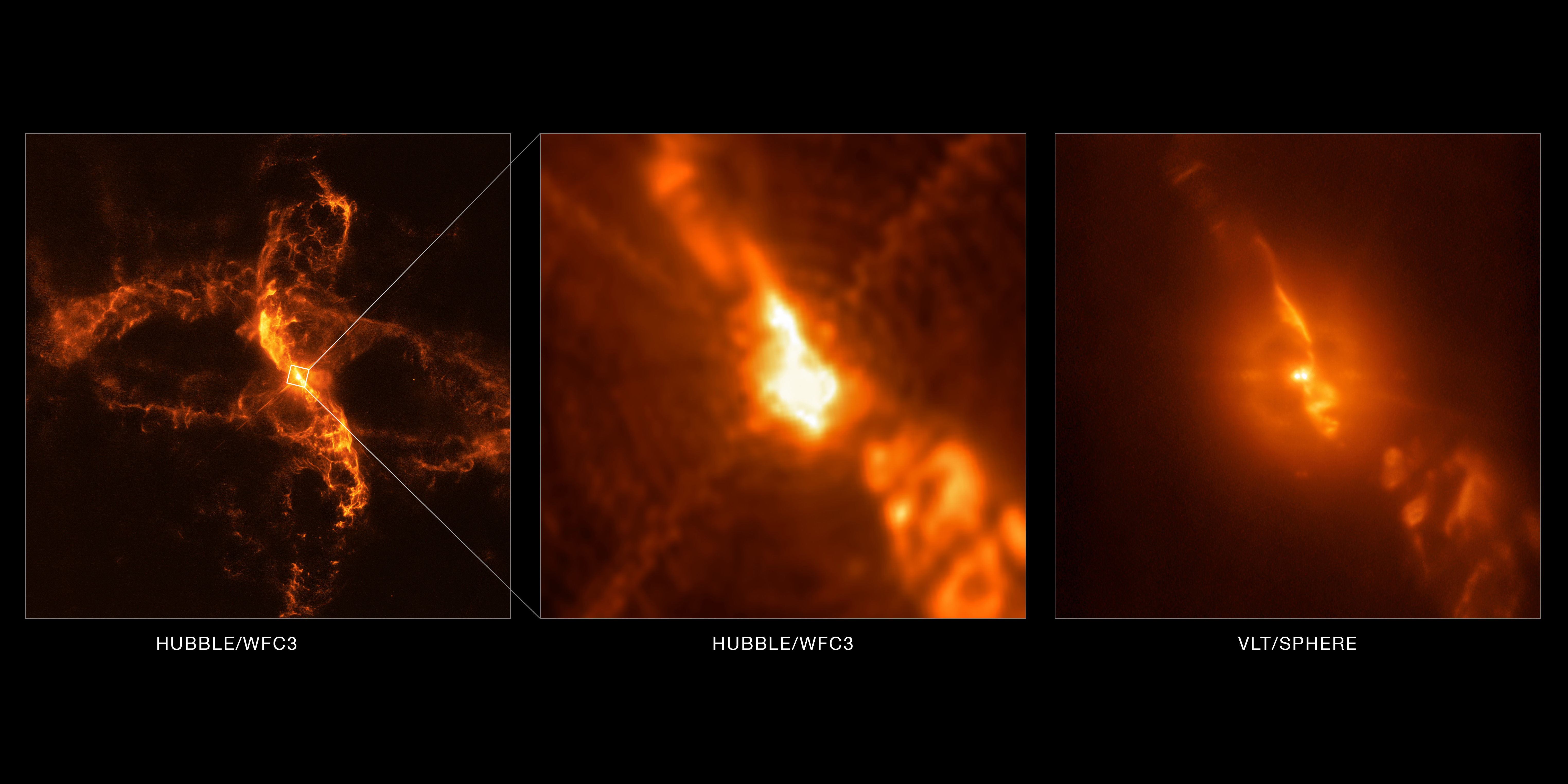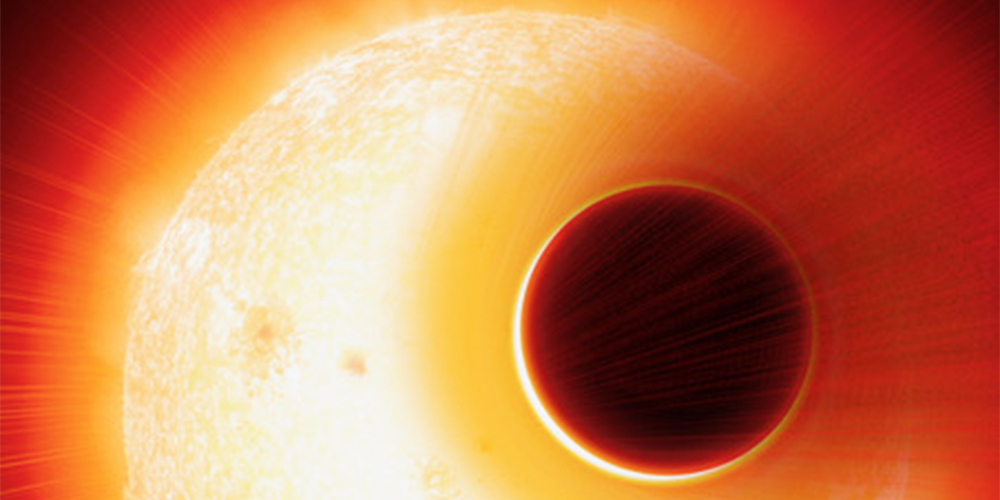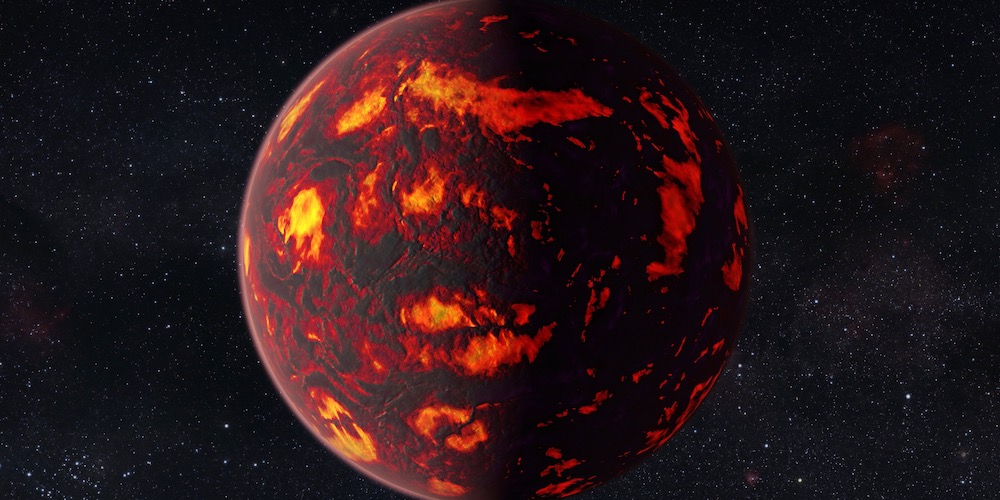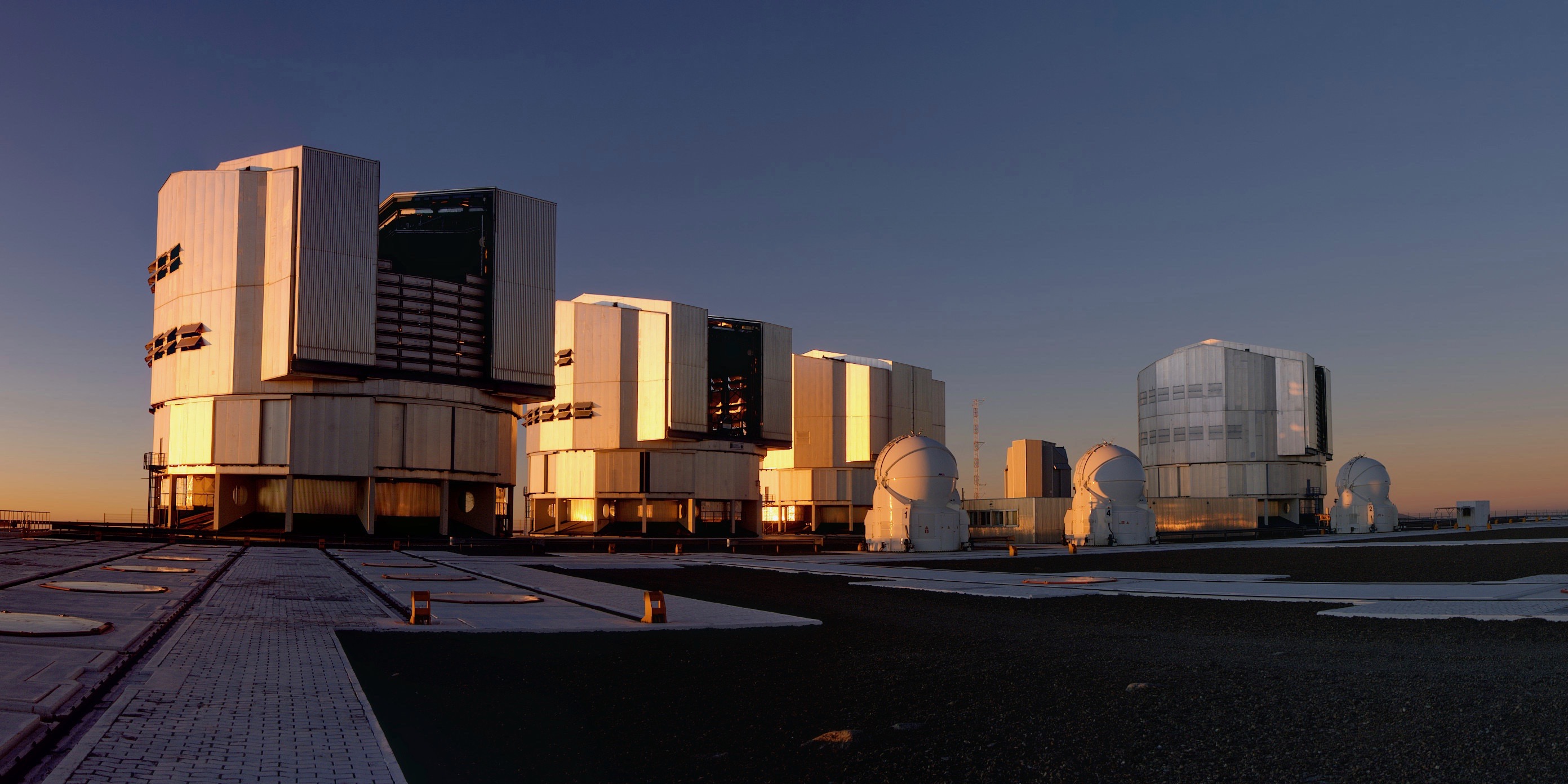News
The shrinking planet
“But where did the hot Neptunes go?” This is the question astronomers have been asking for a long time, faced with the mysterious absence of planets the size of Neptunes very close to their star. A team of researchers, led by astronomers from the University of Geneva, has just discovered that one of these planets […]
Continue ReadingDancing with the Enemy
While testing their new subsystem on the SPHERE planet-hunting instrument, a team lead by Hans Martin Schmid, professor of ETH Zürich and member of PlanetS, was able to capture the sharpest image ever of the binary star R Aquarii. Installed on ESO’s Very Large Telescope in Chile, SPHERE and its component ZIMPOL were developed to […]
Continue ReadingA planet inflated like a balloon
Researchers from UNIGE and members of the NCCR PlanetS have found helium in the atmosphere of an exoplanet, swollen like a balloon. Although helium is a rare element on Earth, it is ubiquitous in the Universe. It is, after hydrogen, the main component of stars and gaseous giant planets. Despite its abundance, helium was only […]
Continue ReadingSpotting Protoplanet Collision Afterglows
Planets start out with a bang. During the last stage of planet formation, planetary embryos collide with other protoplanets, causing their surfaces and mantles to extensively melt. Will it be possible to directly image such molten protoplanets with future telescopes? This is the question that was addressed by a team of young PlanetS researchers. Irene […]
Continue ReadingI actually don’t know the answer…
By Ravit Helled Doing research is challenging. Whether we are working on theory or observations, everyday we have to think about new ways to attack our open questions and of new methods and ideas. We need to make sure that we are aware of all the important details, and at the same time keep in […]
Continue ReadingFine-tuning Espresso
ESPRESSO has been opened to the astronomical community and finally started operations on the 24th of October 2018. Since, it is producing scientific data in the so-called 1-UT mode (one single telescope used), and the first results point towards an amazing measurement precision. “It’s not that bad right now,” says Francesco Pepe of PlanetS and […]
Continue ReadingAsk the NCCR
Do you want to know more about PlanetS, its organization, structure, options, prospects or limitations? After the last General Assembly and some subsequent discussions, we thought that a number of issues might not be clear and asked you to send us all these questions you have about the NCCR that you never had a chance […]
Continue Reading“I love dealing with topics that go against the grain”
“What am I going to do when my time at PlanetS is up?” This is a question that doctoral students and postdocs who know how few and far between the coveted professorships are must ask themselves. In the InsiderS newsletter, we introduce physicists who have successful careers outside the university. Andreas Hirstein is head of […]
Continue ReadingKnowledge transfer with a short-term project
Are you PhD-student, postdoc or engineer, PlanetS Member or Associate? Have you developed competences or ideas that maybe applied to areas outside your specific research activities? Would you like to have a work experience outside of PlanetS in industry or in another research laboratory/institution for a limited period of time while still being employed by […]
Continue ReadingFacebook volunteers wanted
Adding some valuable skills to your CV in just 5 to 10 minutes per week… impossible you think? Well, you are wrong, it is possible. By Thibaut Roger On the first of March 2016, the NCCR PlanetS, following recommendation of the evaluating panel, created its Facebook page. Two and a half year later, we are […]
Continue Reading
